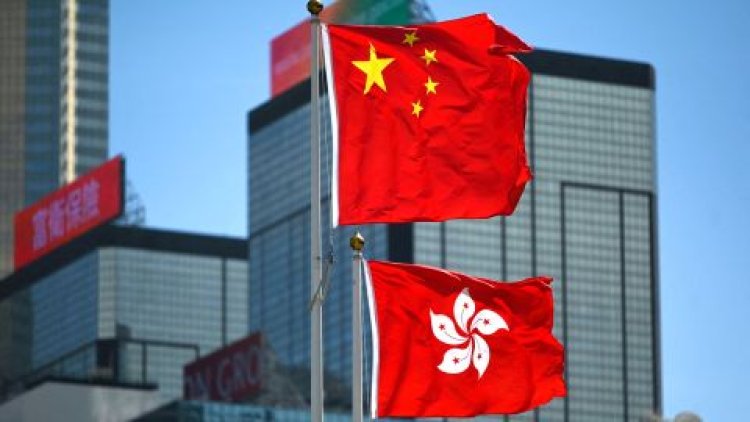Hong Kong jails woman for insulting China’s national anthem during Olympic celebration
The local government of Hong Kong passed legislation in the same month making disrespecting the Chinese national anthem a crime punishable by up to three years in prison and a maximum fine of $6,400 (HK$50,000).

The first person to be imprisoned in the city on a charge of insulting the Chinese national anthem is a woman who carried a British colonial-era flag in celebration of Hong Kong winning Olympic gold.
Online journalist Paula Leung, 42, pleaded guilty to the accusation and was sentenced to three months in jail on Thursday, according to Hong Kong's public broadcaster RTHK.
Leung waved the flag in a mall where a big screen was showing the medal ceremony following Edgar Cheung's victory in the foil at the Tokyo Olympics in July 2021. Leung explained in mitigation that she had autism and learning difficulties.
Large crowds had gathered to celebrate Hong Kong winning its first fencing gold medal and its second overall Olympic gold medal, but things got out of hand when the Chinese national song played before the awards ceremony and some people started booing.
Despite being transferred to China in 1997, Hong Kong, a former British colony, continues to represent itself separately from mainland China at the Olympics.
Many hailed Cheung's victory as a breakthrough for Hong Kong's athletes and a rare instance of harmony in a city rocked by anti-government protests in recent years.
However, because it was the first time the Chinese national anthem, "March of the Volunteers," had been played at an Olympic medal ceremony for a Hong Kong athlete, the use of it to celebrate his victory was contentious.
At the 1996 Atlanta Olympics, when windsurfer Lee Lai-shan won Hong Kong's lone other gold medal, "God Save The Queen" was played as the British colonial flag of Hong Kong was flown.
In order to express their opposition to mainland China's tightening control over the semi-autonomous city, pro-democracy demonstrators in the city occasionally use symbols from the British colonial era.
At the pro-democracy rallies that took place throughout the city in 2019, protesters frequently waved the flag of the colonial era, and some of the thousands of Hong Kong residents who gathered outside the British consulate to pay their respects to Queen Elizabeth II after her passing in September perceived their actions as a subdued form of protest.
Since China implemented a national security law in June 2020 to put an end to the increasingly violent pro-democracy rallies, public gatherings have been increasingly infrequent.
The local government of Hong Kong passed legislation in the same month making disrespecting the Chinese national anthem a crime punishable by up to three years in prison and a maximum fine of $6,400 (HK$50,000).
When "March of the Volunteers" is played or sung, the law states that people must "stand solemnly and deport themselves with dignity."

 Boakyewaa Lawrencia
Boakyewaa Lawrencia 



































